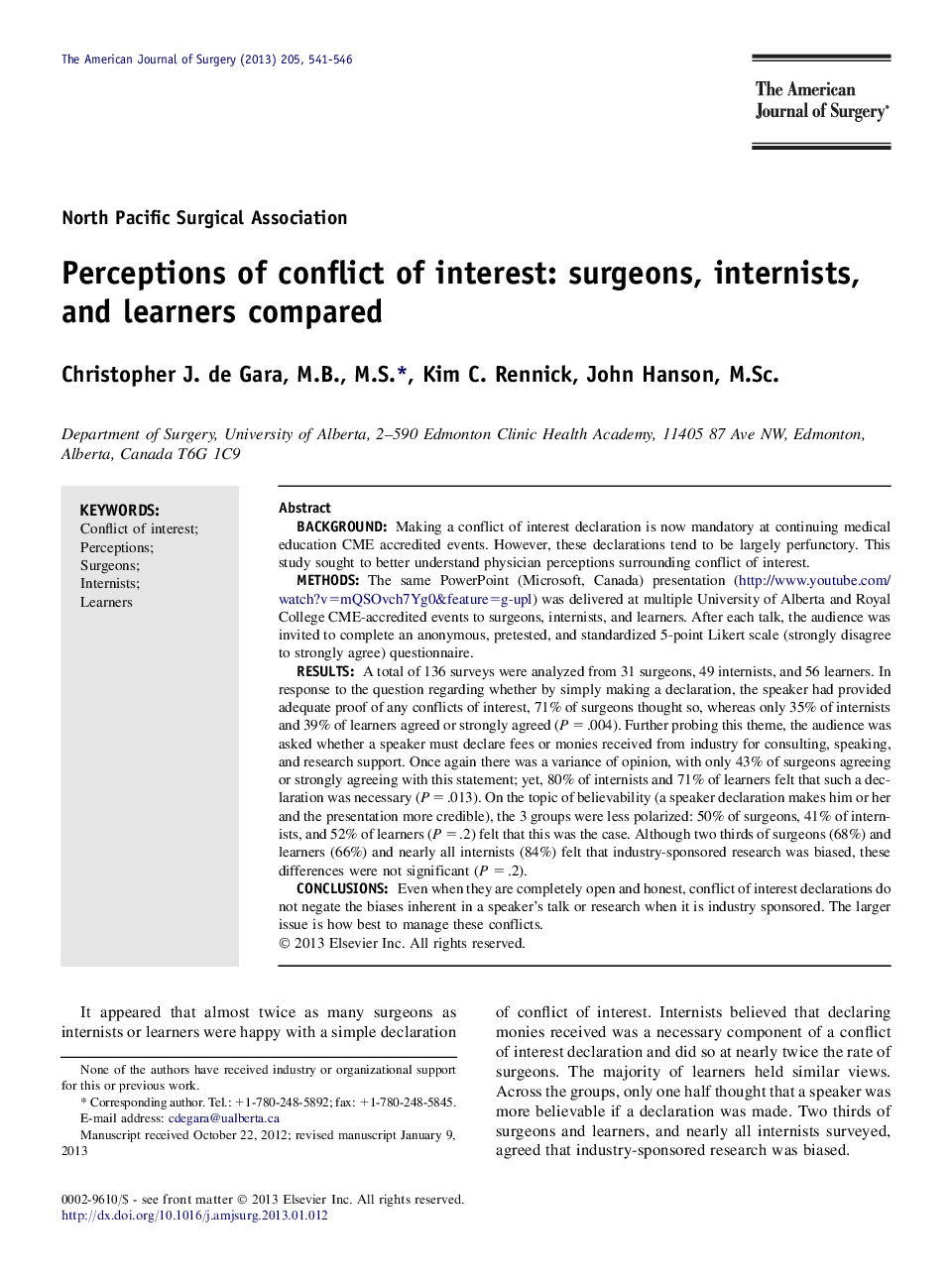| کد مقاله | کد نشریه | سال انتشار | مقاله انگلیسی | نسخه تمام متن |
|---|---|---|---|---|
| 4279265 | 1611519 | 2013 | 6 صفحه PDF | دانلود رایگان |

BackgroundMaking a conflict of interest declaration is now mandatory at continuing medical education CME accredited events. However, these declarations tend to be largely perfunctory. This study sought to better understand physician perceptions surrounding conflict of interest.MethodsThe same PowerPoint (Microsoft, Canada) presentation (http://www.youtube.com/watch?v=mQSOvch7Yg0&feature=g-upl) was delivered at multiple University of Alberta and Royal College CME-accredited events to surgeons, internists, and learners. After each talk, the audience was invited to complete an anonymous, pretested, and standardized 5-point Likert scale (strongly disagree to strongly agree) questionnaire.ResultsA total of 136 surveys were analyzed from 31 surgeons, 49 internists, and 56 learners. In response to the question regarding whether by simply making a declaration, the speaker had provided adequate proof of any conflicts of interest, 71% of surgeons thought so, whereas only 35% of internists and 39% of learners agreed or strongly agreed (P = .004). Further probing this theme, the audience was asked whether a speaker must declare fees or monies received from industry for consulting, speaking, and research support. Once again there was a variance of opinion, with only 43% of surgeons agreeing or strongly agreeing with this statement; yet, 80% of internists and 71% of learners felt that such a declaration was necessary (P = .013). On the topic of believability (a speaker declaration makes him or her and the presentation more credible), the 3 groups were less polarized: 50% of surgeons, 41% of internists, and 52% of learners (P = .2) felt that this was the case. Although two thirds of surgeons (68%) and learners (66%) and nearly all internists (84%) felt that industry-sponsored research was biased, these differences were not significant (P = .2).ConclusionsEven when they are completely open and honest, conflict of interest declarations do not negate the biases inherent in a speaker's talk or research when it is industry sponsored. The larger issue is how best to manage these conflicts.
Journal: The American Journal of Surgery - Volume 205, Issue 5, May 2013, Pages 541–546